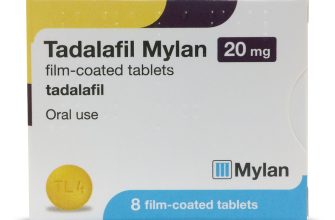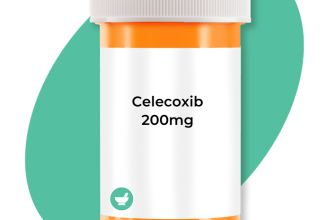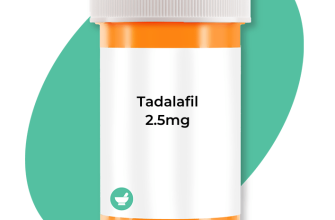If you’re considering non-prescription metformin, it’s crucial to understand its potential benefits and risks. This drug, commonly used for managing type 2 diabetes, can also help with weight management and insulin sensitivity. Many individuals seek it out for these reasons, often looking for alternatives to traditional prescriptions.
Before taking metformin without a prescription, consult a healthcare professional. They can assess your health history and provide tailored advice. Blood sugar regulation is complex, and self-medicating may lead to unintended complications. Proper monitoring of glucose levels remains essential even while using metformin non-prescriptively.
Using metformin can have positive effects, such as reducing appetite and promoting weight loss. However, awareness of side effects is important. Common reactions include gastrointestinal discomfort and potential vitamin B12 deficiency. Staying informed about these issues can help manage your expectations and maintain overall health.
Consider starting with a lower dosage to gauge your body’s response. This cautious approach allows you to observe any changes and minimize side effects. Keep a log of your experiences, including any symptoms or improvements, to discuss with your healthcare provider during follow-ups.
Ultimately, non-prescription metformin can be a resource for some individuals, but informed decision-making is key. Stay proactive about your health, and remember that the guidance of a healthcare professional can make all the difference in your experience.
- Non-Prescription Metformin: Understanding Over-the-Counter Options
- Herbal Supplements and Natural Options
- Lifestyle Modifications to Support Blood Sugar Management
- The Mechanism of Action of Non-Prescription Metformin
- Benefits and Risks of Using Non-Prescription Metformin
- Benefits
- Risks
- Who Should Consider Taking Non-Prescription Metformin?
- Individuals with Prediabetes
- Those Seeking Better Blood Sugar Control
- How to Safely Use Non-Prescription Metformin
Non-Prescription Metformin: Understanding Over-the-Counter Options
Purchasing Metformin without a prescription can lead to no access to the medication in most regions. Yet, understanding alternative options available over the counter is crucial for those exploring management of blood sugar levels. Herbal supplements and lifestyle changes present viable alternatives.
Herbal Supplements and Natural Options
Many people gravitate towards natural solutions. Some herbal supplements, like berberine, have shown potential in lowering blood sugar levels comparable to Metformin. Research indicates berberine enhances insulin sensitivity and promotes healthy glucose metabolism. Always consult with a healthcare provider before trying new supplements to ensure safety and effectiveness.
Lifestyle Modifications to Support Blood Sugar Management
Incorporating dietary and exercise changes significantly impacts blood sugar levels. Focus on a balanced diet rich in fiber, whole grains, vegetables, and lean proteins while minimizing processed foods and sugars. Regular physical activity, such as walking or cycling, also supports metabolic health and aids in blood sugar regulation.
| Option | Description | Considerations |
|---|---|---|
| Berberine | Herbal supplement with glucose-lowering properties. | Consult a healthcare provider for safe dosage. |
| Dietary Changes | Focus on whole foods, reduce sugar intake. | Monitor your response to dietary adjustments. |
| Exercise | Regular physical activity improves insulin sensitivity. | Establish a consistent routine to see results. |
Embracing these health-conscious strategies can support glucose management effectively. Always prioritize personal safety and work with healthcare professionals for optimal outcomes.
The Mechanism of Action of Non-Prescription Metformin
Non-prescription metformin primarily lowers blood sugar levels through multiple mechanisms. It enhances insulin sensitivity, allowing your body to utilize sugar more effectively. This action directly impacts how your muscles and fat tissues respond to insulin, leading to improved glucose uptake and reduced insulin resistance.
Another significant mechanism involves the reduction of hepatic glucose production. Metformin inhibits gluconeogenesis in the liver, decreasing the amount of glucose released into the bloodstream. This effect is particularly beneficial for individuals struggling with high blood sugar levels.
Metformin also promotes the uptake of glucose in the intestines. It reduces intestinal absorption, leading to lower postprandial glucose spikes after meals. This property helps maintain stable blood glucose levels throughout the day.
Additionally, metformin enhances the activity of AMP-activated protein kinase (AMPK), a key regulator of energy metabolism. Activation of AMPK leads to further improvements in insulin sensitivity and glucose uptake while also reducing fat accumulation in the liver.
While non-prescription metformin is widely used, understanding its mechanisms provides insights into its role as a supportive agent for blood sugar management. Monitoring your blood glucose levels while using metformin can help you gauge its effectiveness and adjust your regimen as needed.
Benefits and Risks of Using Non-Prescription Metformin
Using non-prescription metformin may offer significant benefits, particularly for those seeking to manage weight or improve metabolic health. Studies indicate that metformin can help reduce insulin resistance, leading to better blood sugar control. This aspect can be advantageous for individuals without diabetes who want to prevent potential metabolic disorders. Additionally, metformin has shown promise in aiding weight loss, making it an appealing choice for those struggling with obesity.
Benefits
Research highlights metformin’s potential to enhance weight loss efforts by decreasing appetite and promoting fat oxidation. Those experimenting with this medication may find it easier to adhere to dietary restrictions. Furthermore, metformin can positively impact lipid profiles, reducing levels of LDL cholesterol and triglycerides. This effect contributes to heart health, a crucial factor for anyone concerned about cardiovascular risks.
Risks
Despite its advantages, the non-prescription use of metformin carries risks. Individuals may experience gastrointestinal side effects such as nausea, diarrhea, and abdominal discomfort. Some users report that these symptoms can be bothersome and lead to discontinuation. Additionally, metformin may not be suitable for everyone; people with kidney issues or specific medical conditions should avoid it. Regular monitoring of renal function is essential for those considering this medication. Always consult with a healthcare provider to understand your personal health circumstances before beginning any medication.
In summary, while non-prescription metformin can provide benefits such as improved metabolic health and weight loss, individuals must weigh these against potential side effects and health risks. Prioritizing informed decisions ensures a safer approach to personal health management.
Who Should Consider Taking Non-Prescription Metformin?
Individuals who are overweight and struggle with weight management may find non-prescription metformin beneficial. This medication can aid in reducing insulin resistance, which often contributes to weight gain. By improving glucose metabolism, it supports the body in utilizing sugar more efficiently.
Individuals with Prediabetes
People diagnosed with prediabetes should evaluate non-prescription metformin. It can lower the risk of developing type 2 diabetes by improving insulin sensitivity. Regular monitoring of blood glucose levels while using this medication enhances its effectiveness in stabilizing sugar levels.
Those Seeking Better Blood Sugar Control
Anyone aiming to maintain consistent blood sugar levels may consider incorporating non-prescription metformin into their routine. This is particularly relevant for those with fluctuating glucose levels, as metformin can assist in achieving balance and reducing spikes after meals.
Always consult with a healthcare provider before beginning any medication, including non-prescription metformin, to ensure safety and appropriateness based on individual health conditions.
How to Safely Use Non-Prescription Metformin
Always consult with a healthcare professional before starting non-prescription metformin. They can evaluate your health condition and provide tailored advice.
Begin with a low dose. Starting with a smaller amount helps your body adjust and reduces the risk of side effects.
Monitor your blood sugar regularly. Keeping track of your levels gives clear insights into how metformin affects your body and helps you make informed decisions.
- Check blood sugar levels before meals and at bedtime.
- Keep a log of your measurements to discuss with your healthcare provider.
Stay hydrated. Metformin can lead to dehydration, especially if you experience gastrointestinal side effects. Drinking enough water supports kidney function.
Be aware of potential side effects. Common issues include nausea, diarrhea, and abdominal discomfort. If these persist or worsen, contact a healthcare provider.
- Take metformin with food to minimize digestive discomfort.
- Introduce the medication gradually, increasing the dose as tolerated.
Limit alcohol consumption. Alcohol can increase the risk of lactic acidosis, a rare but serious side effect associated with metformin use. Drink alcohol responsibly.
Maintain a balanced diet. Focus on whole foods, lean proteins, and plenty of fruits and vegetables. A healthy diet enhances the medication’s benefits.
- Avoid high-sugar snacks and drinks that can spike blood sugar levels.
- Plan meals to include complex carbohydrates.
Manage your weight. Achieving and maintaining a healthy weight helps improve insulin sensitivity and blood sugar control.
Regular exercise contributes significantly to managing blood sugar levels. Aim for at least 150 minutes of moderate-intensity aerobic activity per week.
Stay informed. Research and education about non-prescription metformin can help you make informed choices about your health.
Schedule regular check-ups. Routine assessments allow healthcare providers to monitor your progress and adjust treatment as necessary.
Lastly, be cautious when using non-prescription metformin if you have certain health conditions, such as kidney issues, liver conditions, or heart problems. Always prioritize safety and well-being.









